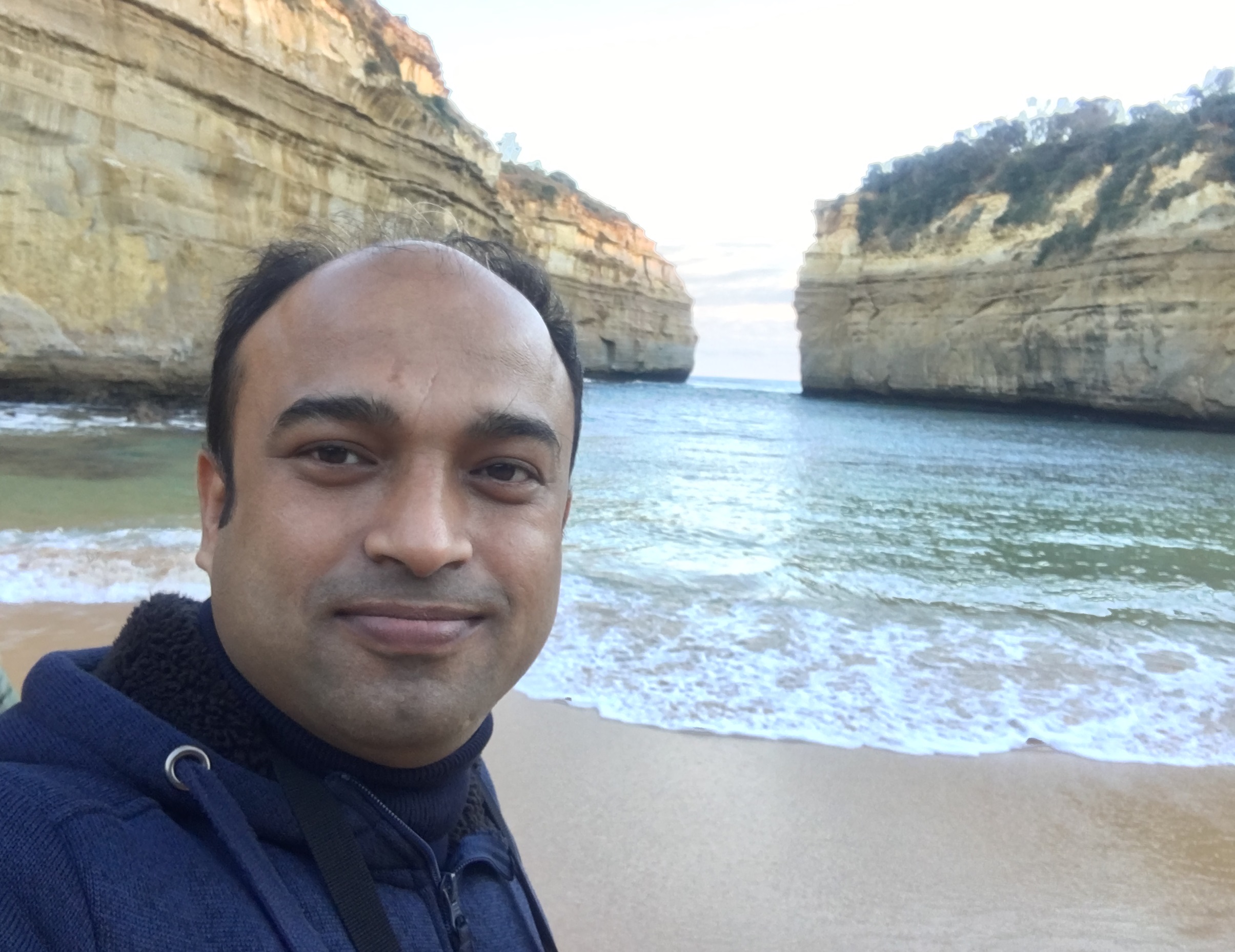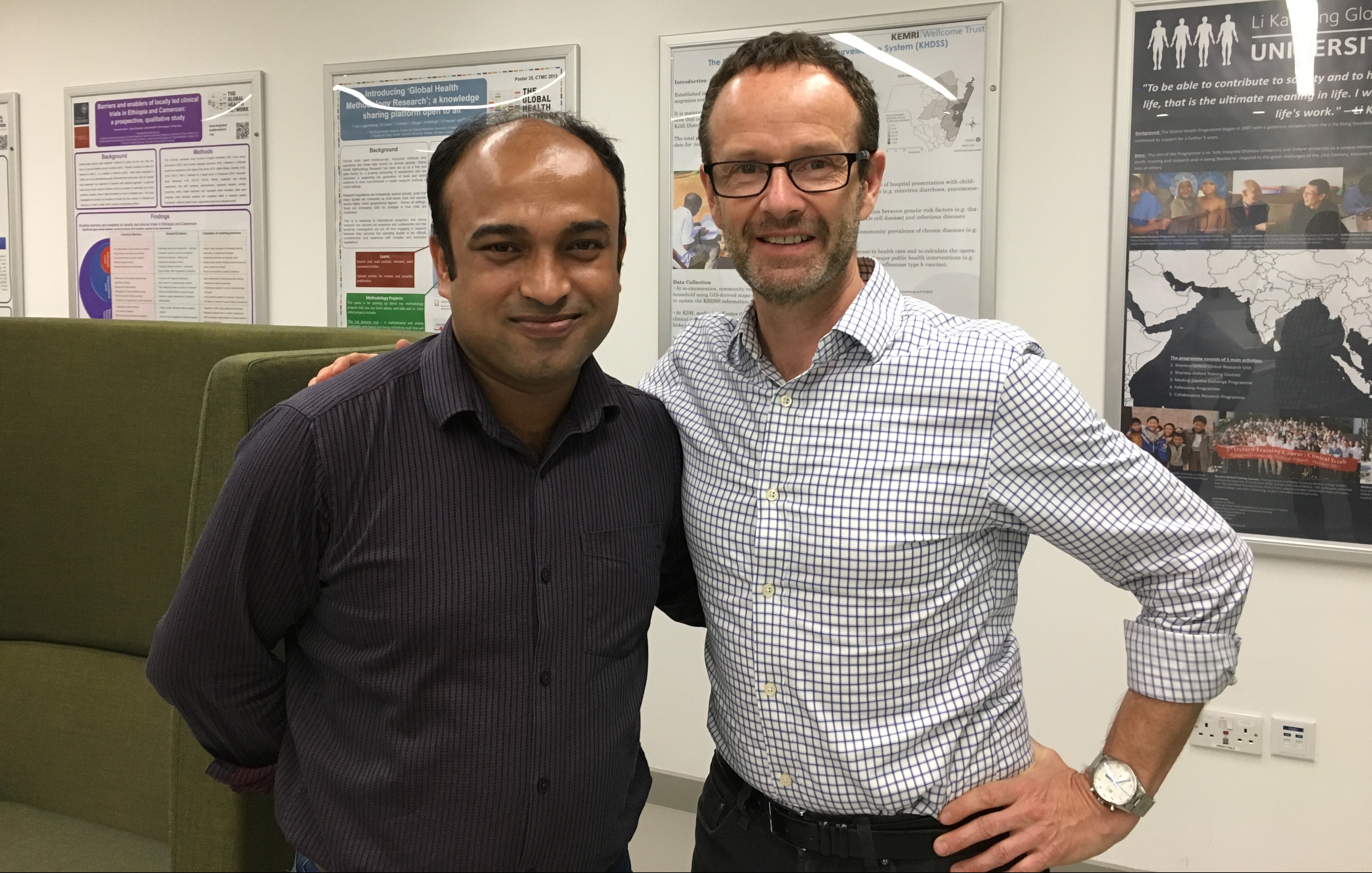 Training partner organization:
Training partner organization:
- WorldWide Antimalarial Resistance Network (WWARN), Oxford, UK
Highlight during fellowship:
- Experience with analysing individual patient-pooled data collected from prospective clinical trials
Post-fellowship highlights:
- Author on a paper on a COVID-19 therapeutic trial published in the International Journal of Infectious Diseases; Bangladesh Ministry of Health and Family Welfare currently assessing study results for inclusion in national COVID-19 treatment guidelines
- Currently principal investigator on a project funded by The Global Fund that aims to assess the compliance of malaria treatments and coverage, access and utilization of insecticidal nets in Bangladesh
“My career took a big jump following my clinical research and development fellowship,” says Mohammad Sharif Hossain, currently a co-investigator on three ongoing COVID-19 studies at icddr,b, a renowned research institution in Dhaka, Bangladesh, with an international reputation in global health research.
He has also recently published a paper (as a coauthor) on research he conducted on the use of ivermectin as a treatment for COVID-19. The study results, published in the International Journal of Infectious Diseases, have been disseminated to policy makers at the Bangladesh Ministry of Health and Family Welfare, and are currently being assessed for inclusion in national guidelines on treatment of COVID-19 patients.
But until taking up TDR’s fellowship, Sharif’s career progression had been steady but fairly unremarkable. He’d completed a masters in applied statistics from University of Dhaka – a field, he says, that chose him rather than being chosen by him.
Having enjoyed practical work during his studies, Sharif decided on a research career path, joining icddr,b as a statistical officer. It was in 2018, after his promotion to Senior Statistical Officer, that he recalls an internal email about the Clinical Research and Development Fellowship (CRDF). He’d already felt the “beauty” of clinical trials during some field work and knew the CRDF presented a tremendous opportunity to gain and enrich his knowledge of clinical research. His application was successful, and he joined WWARN, where he learned how to standardize and analyse data from different clinical trials and settings.
In fact, Sharif worked in three different locations during his fellowship: Oxford, UK, and Melbourne and Darwin in Australia. His work there focused on updating the WWARN clinical trials database, identifying relevant trials already in the WWARN repository, creating a ‘Call’ for a WWARN Study Group and inviting investigators to be part of the study. His work also included developing a Statistical Analysis Plan (SAP), analysing data according to the SAP and, finally, preparing a manuscript using the data generated.

Mohammad Sharif Hossain with Professor Philippe Guérin, director of WWARN
He is proud to have worked with and been supported by “three excellent professors” (Professors Ric Price, Philippe Guérin and Julie Anne Simpson) who, as well as supervising his work, helped him to adjust to the new cities and society.
Returning to icddr,b on completion of his fellowship, Sharif was now skilled and confident in handling and analysing the big volumes of data emerging from clinical trials – where previously he had only worked with small volumes of data from surveys. This expertise is demonstrated by his work on malaria published in PloS Medicine (involving a meta-analysis of 42 studies covering 15 341 patients) and his most recent research work on COVID-19.
This includes a multicentre phase II/III trial of the BDB-001 injection (a monoclonal antibody – C5a blocking agent) in the treatment of progressive severe COVID-19; a baseline survey for malaria and COVID-19 infection in the Chittagong Hill Tracts in southeastern Bangladesh; and a study of rapid antigen tests to diagnose COVID-19 in an urban community in Dhaka.
While Sharif’s work is going well, and he is excited by his research, some challenges remain. Funding and job security are concerns for many young Bangladeshi scientists, and his COVID-19 work also makes him feel a pressing need for better awareness of the disease amongst the population of Bangladesh.
Sharif remains in touch with all his CRDF supervisors and with Dr Robert Common, his mentor. He is also thankful to his parents, especially his mother, Professor Dr Syed Shahadat Hossain, Dr Wasif Ali Khan, and Dr Mohammad Shafiul Alam who have all helped shape his career. He has kept in contact with other CRDF fellows (through a Whatsapp group) and with TDR. In fact, he recently took part in TDR’s ‘Global Research Mentorship Challenge' contest.
For Sharif, work is now his passion, along with his faith, a desire to “be kind,” and sharing his compatriots’ obsession with cricket. Asked about his future ambitions, he modestly states: “I just love to work and take the challenges that come my way.”
TDR’s Clinical Research and Development Fellowship (CRDF) allows early- to mid-career researchers in low- and middle-income countries to learn how to conduct clinical trials. Successful applicants are placed for 12 months in host training organizations (pharmaceutical companies, including members of the International Federation of Pharmaceutical Manufacturers & Associations, product development partnerships, or research organizations) and then receive a reintegration grant for 12 months at their home institution. The fellowship is jointly implemented by TDR, the UNICEF/UNDP/World Bank/WHO Special Programme for Research and Training in Tropical Diseases, and the European & Developing Countries Clinical Trials Partnership (EDCTP). The fellowship is supported by the Bill & Melinda Gates Foundation.

